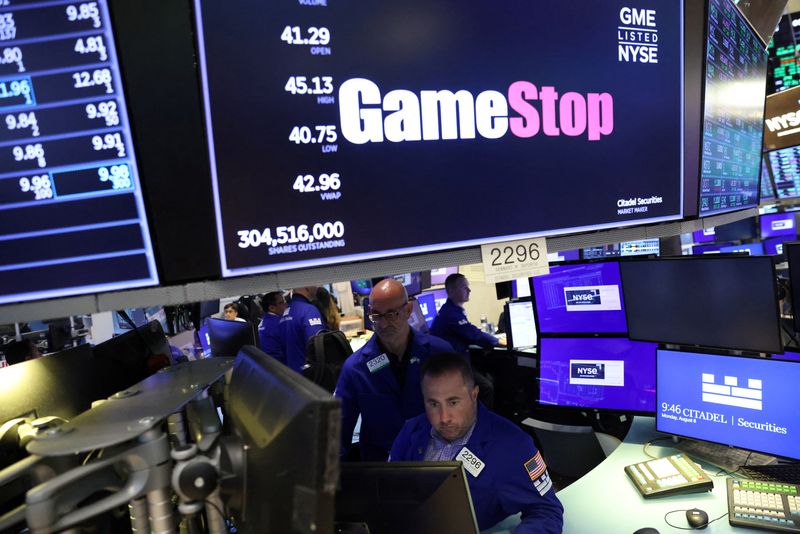By Aditya Soni
(Reuters) -GameStop on Thursday named billionaire Ryan Cohen as its CEO and chairman, tightening the activist investor's grip on the ailing videogame retailer that he intends to turn around.
The brick-and-mortar retailer that once attracted gamers has struggled in the age of online downloads, drawing it to the heart of a clash in 2021 between hedge funds betting on its demise and retail traders pumping up its price.
At the peak of that meme stock rally, Cohen, GameStop (NYSE:GME)'s largest investor, joined the board to aid a pivot to e-commerce.
His shot to fame was building up an online pet products retailer Chewy into a powerhouse that he sold for $3.5 billion in 2017.
Cohen became executive chairman at Gamestop in June after former CEO Matt Furlong was ousted. The company said he will relinquish that title and will not receive any compensation for his new roles.
The billionaire had initially tried to steer GameStop aggressively toward a more online-focused model as the chain, dependent on physical stores, looked to revive its business.
But he has backtracked on some of those e-commerce plans, relying more on GameStop's brick-and-mortar stores and using them as places where customers can pick up online orders.
The company's quarterly earnings earlier this month signaled that the strategy was working as strong demand for videogames, collectibles and consoles helped GameStop post a smaller-than-expected loss and revenue that beat estimates.
Still, there are concerns among analysts about the slow pace of change at GameStop and Cohen's mixed record as an activist investor at the companies he has targeted, including bankrupt retailer Bed Bath & Beyond (OTC:BBBYQ) and Nordstrom (NYSE:JWN).
The company has seen several executive departures in recent years, with former chief operating officer Jenna Owens leaving in October 2021 just seven months after joining.
Former finance chief Michael Recupero, who was hired at the same time as Furlong, was terminated last year.
"The appointment of the controlling shareholder reflects the difficulty GameStop has had in attracting executives," said Wedbush analyst Michael Pachter.

"We remain convinced that GameStop is doomed as declining physical software sales and a shift of sales to subscriptions and digital downloads seal its fate."
The video-game retailer's shares have lost more than 80% of their value since the record high in 2021, including a more than 7% decline this year. They were trading 2% lower on Thursday.